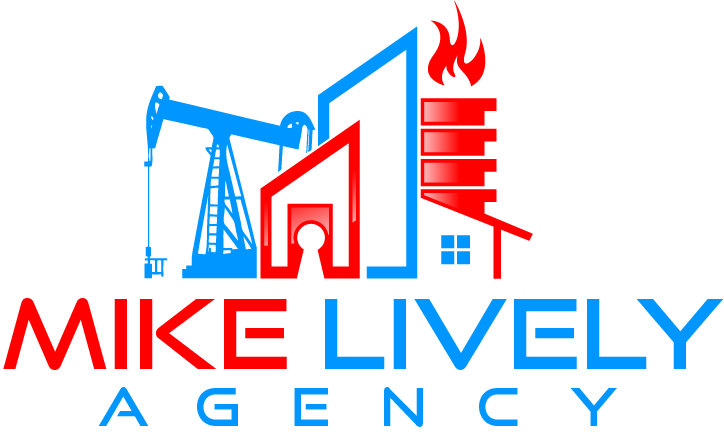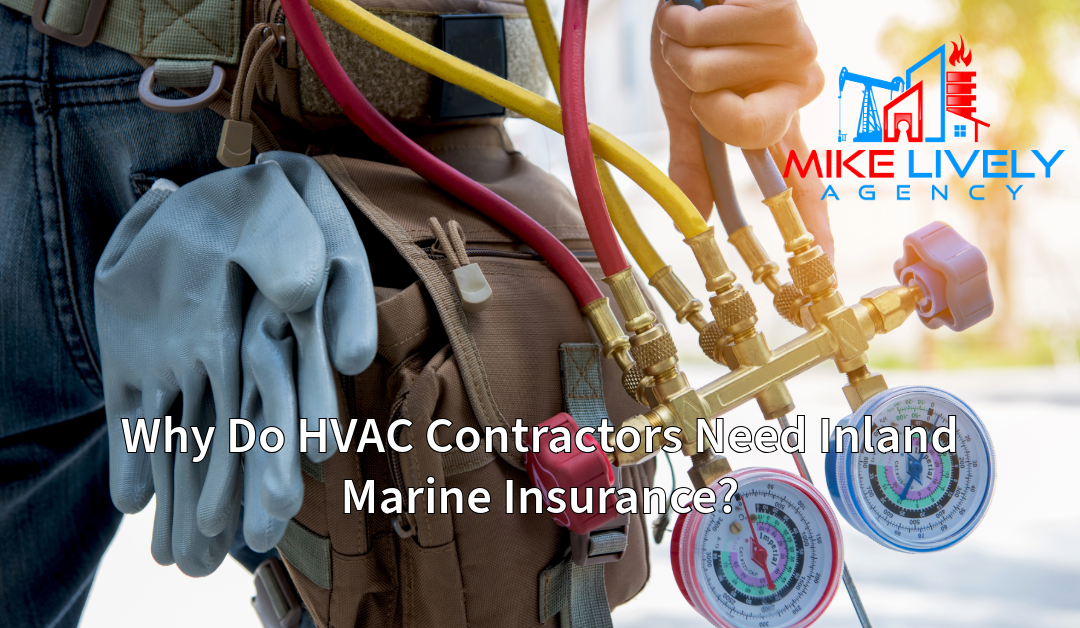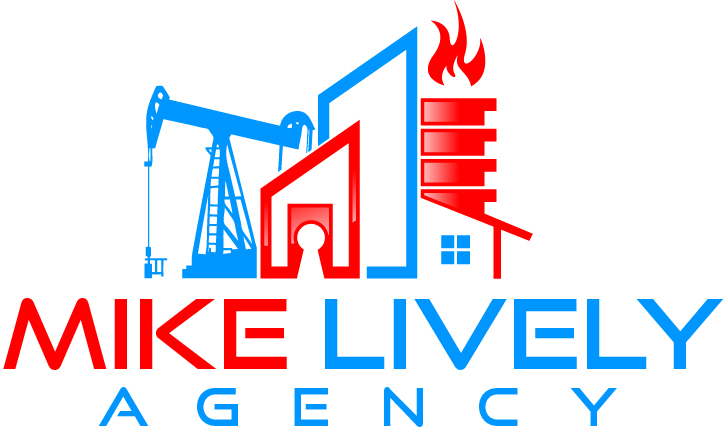Let’s picture a day in the life of Tony, an HVAC business owner with a reputation for tackling even the trickiest jobs. One busy afternoon, Tony and his crew load up their truck with essential equipment and head to a client’s location across town. On the way, they hit a patch of rough road, and several high-value tools shift, getting damaged. At the job site, they’re ready to unload and start work—only to find that some key equipment now needs replacement. Tony realizes that the tools and equipment damaged in transit aren’t covered by his commercial property policy. This situation leaves him facing unexpected repair costs and work delays. If only Tony had a specific type of insurance to cover equipment in transit and stored at temporary locations. Enter: Inland Marine Insurance.
Inland Marine Insurance provides essential protection for HVAC contractors, especially those frequently transporting valuable equipment between job sites. Here’s why this coverage is essential and how it benefits HVAC businesses like Tony’s.
What is Inland Marine Insurance?
Inland Marine Insurance covers valuable property—tools, materials, and equipment—when it’s on the move or stored at locations other than the business’s primary site. Unlike commercial property insurance, which typically only protects items at a permanent business location, inland marine coverage extends to assets in transit or stored temporarily. For HVAC contractors who regularly transport specialized tools to different job sites, this extra layer of security can be a business-saver.
Key Benefits for HVAC Contractors
1. Protects Equipment in Transit
For HVAC businesses, transporting equipment like air conditioning units, specialized tools, and other high-value assets is a routine part of the job. Inland Marine Insurance ensures coverage for these items, protecting contractors from financial loss if they get damaged or stolen on the way to a job site. Tony’s situation could have been resolved with a simple claim, saving him from the out-of-pocket repair expenses he now faces.
2. Covers Property Stored Offsite
Sometimes, HVAC projects require storing equipment temporarily at job sites or warehouses. While commercial property insurance covers assets at the business’s primary location, it generally doesn’t extend to equipment stored offsite. Inland Marine Insurance bridges this gap, offering peace of mind to contractors who store items at multiple locations throughout the year.
3. Financial Protection from Theft or Accidental Damage
Theft is a real concern for contractors who regularly work at multiple sites or in urban areas. Inland Marine Insurance covers the costs of replacing stolen equipment, which can be especially helpful if a contractor needs to replace costly items. Additionally, inland marine policies cover accidental damage during transport or temporary storage, protecting the business owner from expensive replacements and work disruptions.
4. Helps Maintain Job Schedules and Prevents Costly Delays
An HVAC contractor’s work schedule is often tightly planned. If key equipment gets damaged or stolen, a project could face significant delays, affecting the business’s reputation and client satisfaction. Inland Marine Insurance ensures contractors can quickly replace lost or damaged items, allowing them to stick to their schedule and complete jobs on time.
Real-World Scenarios for Inland Marine Insurance in HVAC
Imagine a few scenarios where inland marine coverage could prove invaluable for HVAC contractors:
- Damage in Transit: Tony’s crew is on their way to install an air conditioning unit at a commercial property. En route, the unit shifts and sustains damage due to a sudden stop. With inland marine coverage, the replacement costs for the unit could be covered, preventing unexpected expenses.
- Theft from a Job Site: A contractor leaves some essential tools at a secured commercial job site overnight. Unfortunately, the tools are stolen. Inland Marine Insurance would allow the contractor to replace the stolen items without bearing the full financial burden.
- Accidental Damage During Storage: Sometimes, HVAC equipment needs to be stored temporarily at a remote location. If a heavy rainstorm causes water damage to the stored tools, inland marine insurance could cover the repair or replacement costs.
These situations highlight the importance of having a policy that protects against risks specific to HVAC contracting, where assets are constantly in motion or temporarily stored.
How Inland Marine Works with Other Policies
Inland Marine Insurance complements other essential coverage types, like General Liability and Commercial Property Insurance. Here’s how it interacts with these policies to provide comprehensive protection for HVAC contractors:
- Commercial Property Insurance: While commercial property policies cover physical assets at the business’s main location, inland marine fills in the gaps for assets offsite or in transit. Contractors with both policies have peace of mind knowing their equipment is protected wherever it goes.
- General Liability Insurance: Inland Marine Insurance protects the contractor’s assets, while general liability covers third-party bodily injuries or property damage that might occur during a job. Together, these policies offer robust protection for both the contractor and their clients.
- Commercial Auto Insurance: For contractors who rely on vehicles to transport equipment, commercial auto insurance covers the vehicle itself, while inland marine focuses on the contents inside. Together, these policies safeguard both the vehicle and the valuable items it carries.
Choosing the Right Inland Marine Insurance for Your HVAC Business
When selecting inland marine coverage, HVAC contractors should consider factors such as:
- Coverage Limits: Choose limits that align with the total value of the equipment being transported or stored offsite. Contractors with specialized equipment may need higher coverage limits to fully protect their assets.
- Deductibles: Inland marine policies often have flexible deductible options. Contractors should balance their monthly premium with a deductible that’s manageable in case of a claim.
- Policy Inclusions and Exclusions: Review what is specifically covered and any exclusions in the policy. For example, some inland marine policies may exclude certain types of items, while others may have limitations on coverage for theft in specific circumstances.
Inland Marine Insurance is an essential tool for HVAC contractors who rely on mobility and offsite storage. For business owners like Tony, it’s the missing piece in a comprehensive risk management plan, ensuring that every tool, unit, and component remains protected, no matter where the job takes them.
Keeping Your Business Prepared
Inland Marine Insurance offers HVAC contractors a targeted solution for safeguarding the equipment that keeps their operations moving. For Tony and many like him, this policy could prevent costly delays, protect valuable assets, and maintain the trust clients have in his services. Contractors without inland marine coverage may find themselves financially exposed when transporting equipment or working on-site, making it a must-have policy for those aiming to secure their business’s future.
For more information on protecting your HVAC business, contact an insurance professional to explore inland marine coverage options that best fit your needs.
At the Mike Lively Agency, we understand the unique challenges contractors face in the Midland-Odessa and Permian Basin regions. Our experienced team commits to providing comprehensive insurance solutions tailored to the specific needs of your business. Whether you need worker’s compensation coverage, general liability insurance, or commercial auto insurance, we’re here to help you navigate the complexities of insurance and find the best protection for your operations. Contact us today to learn more about our services and how we assist West Texans in safeguarding your business and ensuring its continued success.


